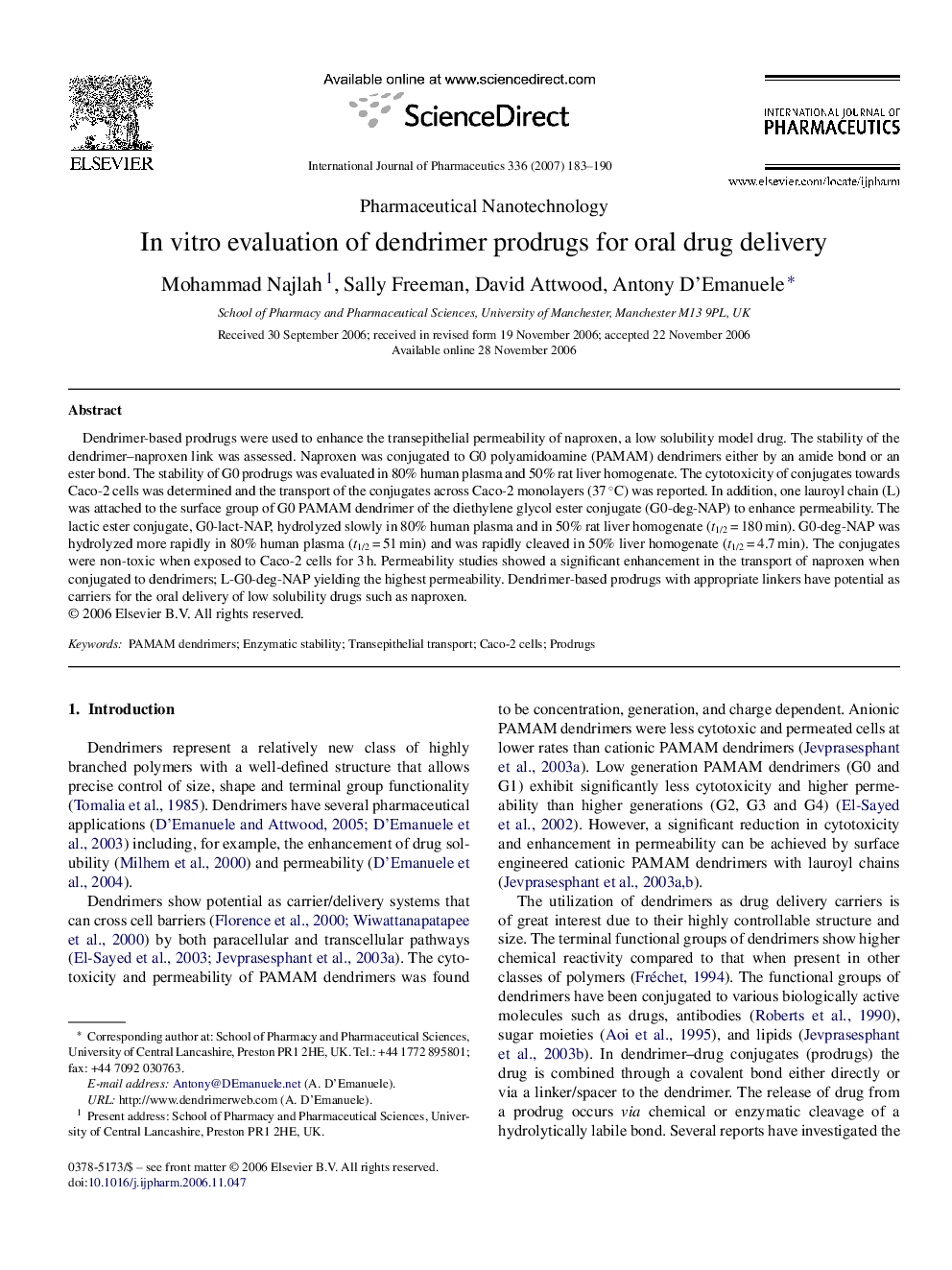| Article ID | Journal | Published Year | Pages | File Type |
|---|---|---|---|---|
| 2506240 | International Journal of Pharmaceutics | 2007 | 8 Pages |
Dendrimer-based prodrugs were used to enhance the transepithelial permeability of naproxen, a low solubility model drug. The stability of the dendrimer–naproxen link was assessed. Naproxen was conjugated to G0 polyamidoamine (PAMAM) dendrimers either by an amide bond or an ester bond. The stability of G0 prodrugs was evaluated in 80% human plasma and 50% rat liver homogenate. The cytotoxicity of conjugates towards Caco-2 cells was determined and the transport of the conjugates across Caco-2 monolayers (37 °C) was reported. In addition, one lauroyl chain (L) was attached to the surface group of G0 PAMAM dendrimer of the diethylene glycol ester conjugate (G0-deg-NAP) to enhance permeability. The lactic ester conjugate, G0-lact-NAP, hydrolyzed slowly in 80% human plasma and in 50% rat liver homogenate (t1/2 = 180 min). G0-deg-NAP was hydrolyzed more rapidly in 80% human plasma (t1/2 = 51 min) and was rapidly cleaved in 50% liver homogenate (t1/2 = 4.7 min). The conjugates were non-toxic when exposed to Caco-2 cells for 3 h. Permeability studies showed a significant enhancement in the transport of naproxen when conjugated to dendrimers; L-G0-deg-NAP yielding the highest permeability. Dendrimer-based prodrugs with appropriate linkers have potential as carriers for the oral delivery of low solubility drugs such as naproxen.
